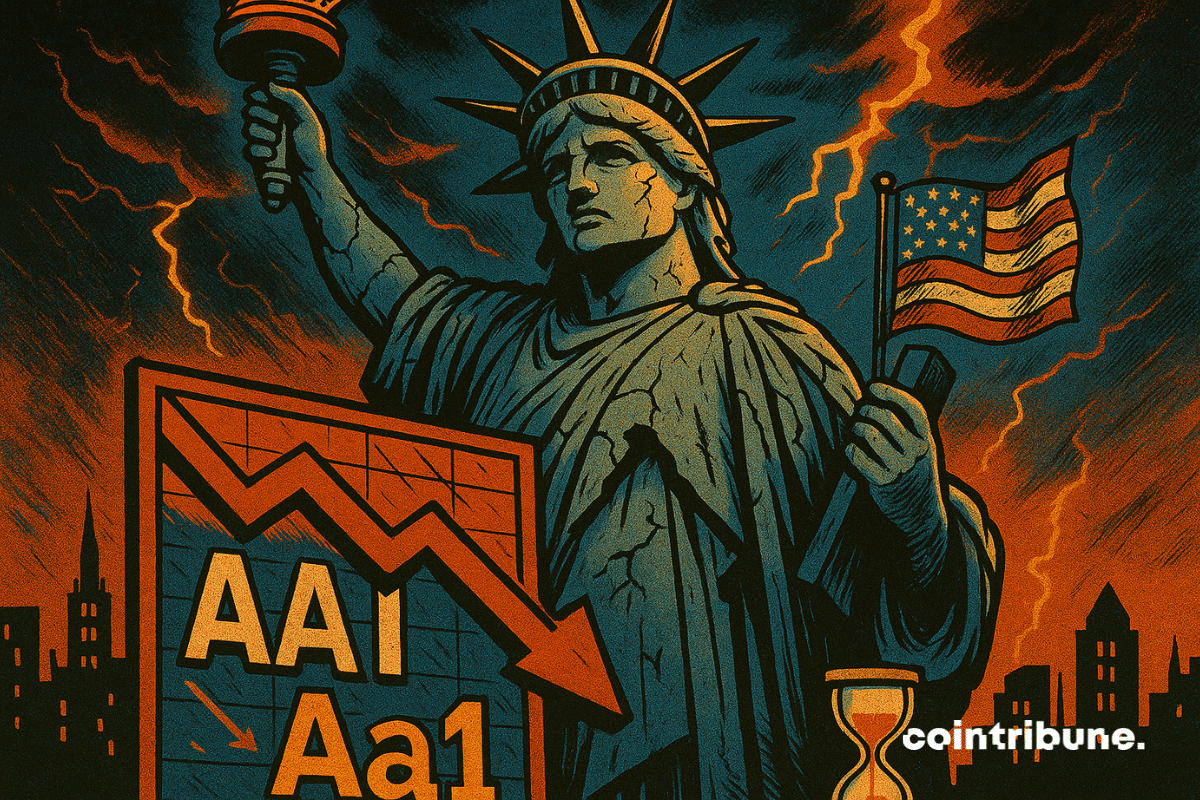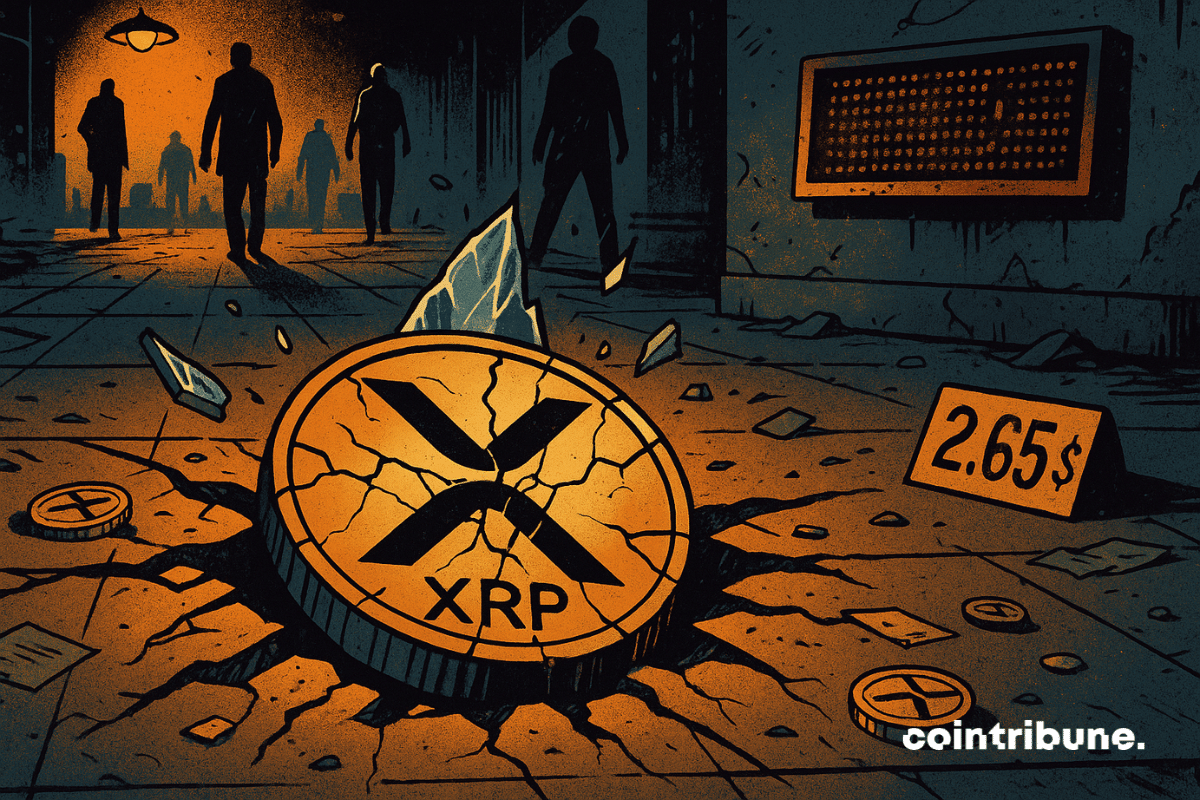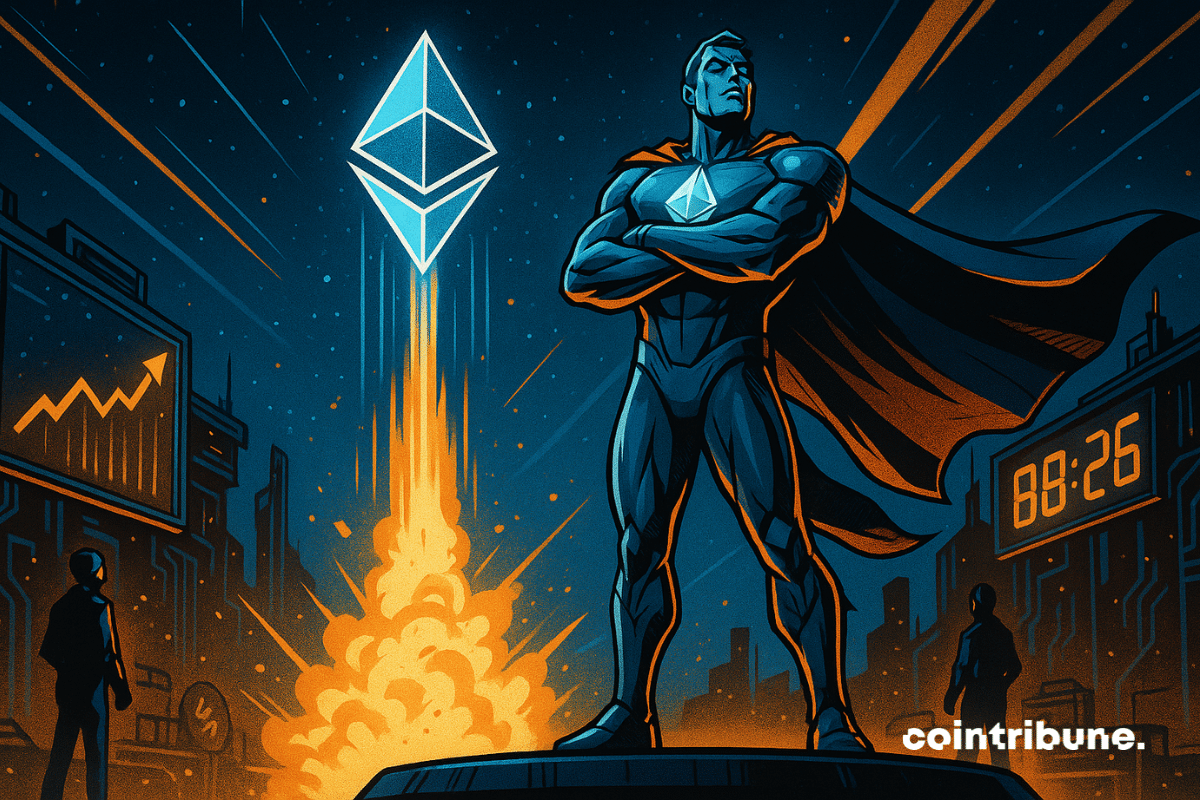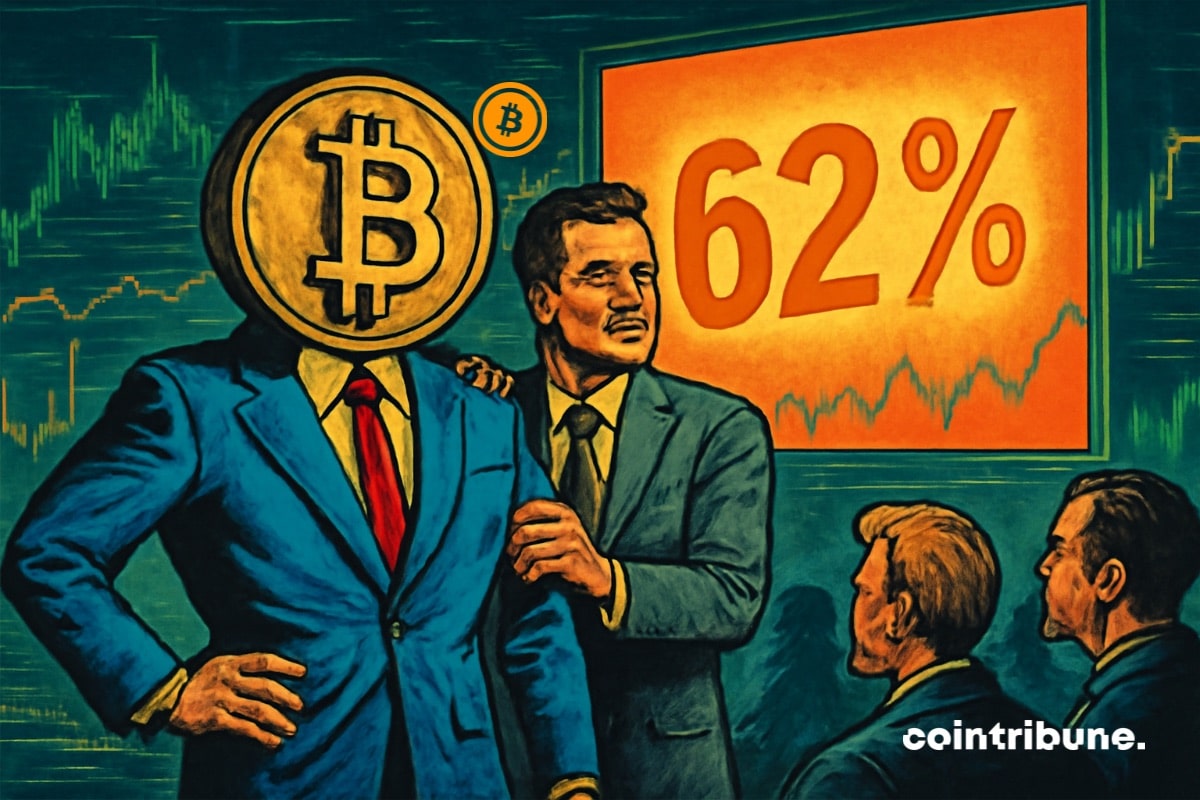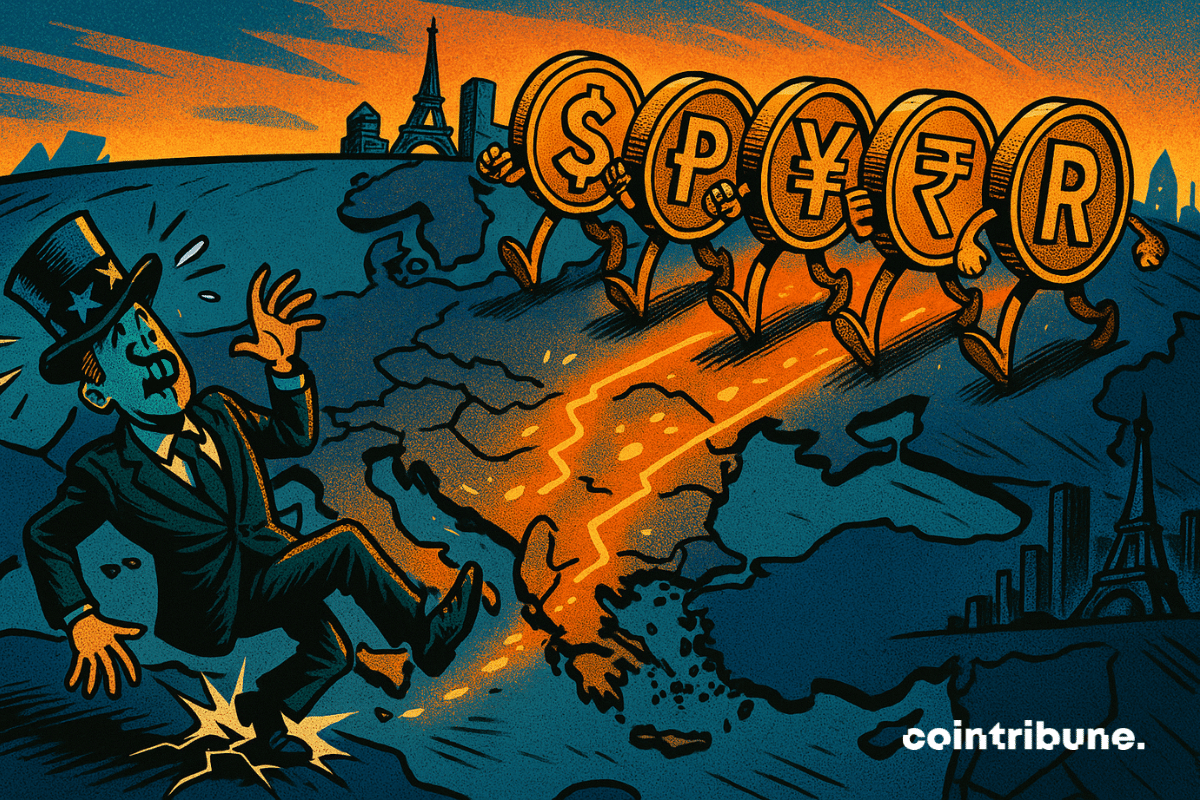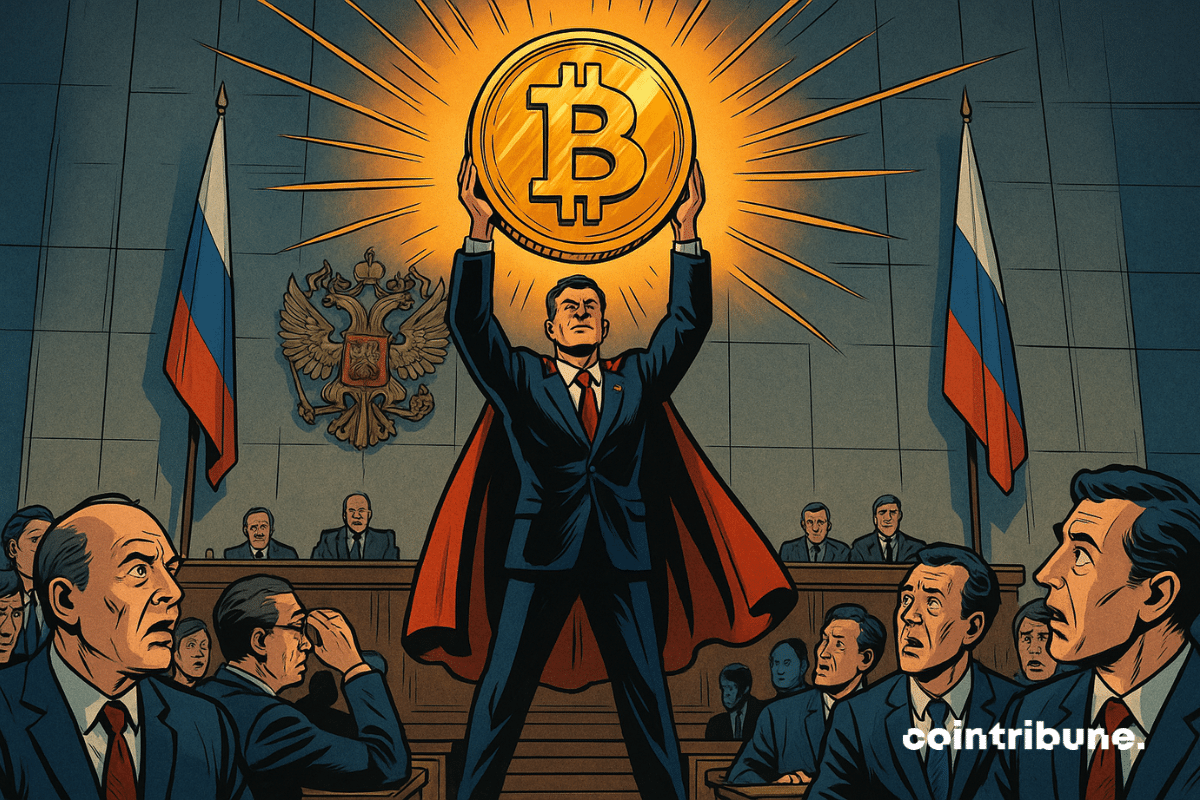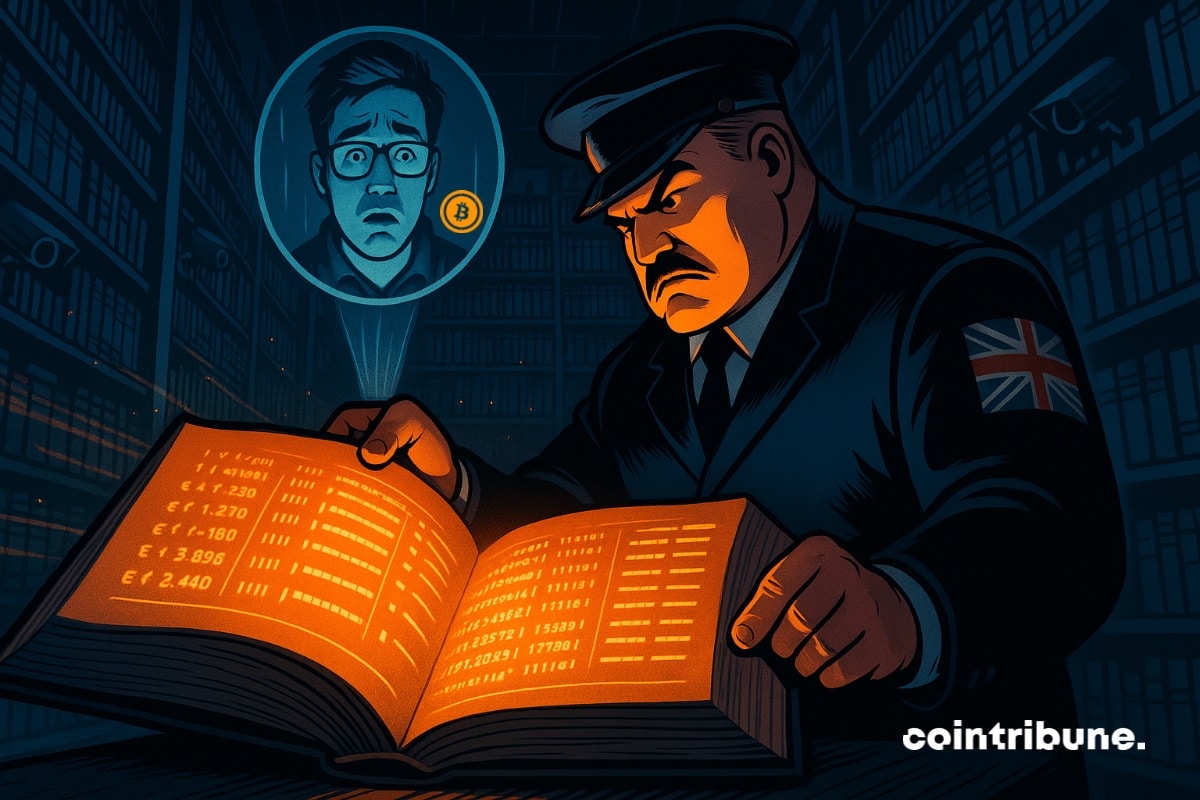Trump promised miracles, Moody's delivers slaps: the American economy is sinking, the debt is exploding, and the rating falls. Budget magic or just an electoral sleight of hand?
Archive May 2025
May 2025. Bitcoin is navigating beyond $103,000, but this seemingly dizzying figure may just be a warm-up. Behind the scenes, a structural imbalance is taking hold: supply is melting away like snow in the sun, while institutional demand is skyrocketing. Some already speak of a point of no return. Others, like Bitwise or Strategy, are betting on an explosion in prices — up to $200,000 before the end of next year. Myth or inevitable mechanism? What is certain is that the race is on, and the stakes are colossal.
Trump ready to sign his crypto laws before the summer break. The Senate is cleaning up, but the Trump family keeps their small affairs well protected.
Driven by a resurgence of optimism, XRP seemed poised for new heights. However, within just a few sessions, the momentum came to a sudden halt. The price is declining, and trading volumes are collapsing. In a tense crypto market, this sudden reversal raises doubts about the strength of the bullish movement and prompts questions about the next phase of the cycle. Should this be seen as a mere technical pause or the beginnings of a deeper pullback?
Ethereum is about to reach a decisive milestone. With EIP-7928, a bold proposal has just been introduced to allow parallel execution of transactions on Layer 1. Long considered an almost insurmountable challenge due to risks to system consistency, this advancement could profoundly transform the network's architecture. In response to the persistent scalability limits, this new technical milestone reignites discussions among developers and marks a potential turning point for Ethereum's evolution towards enhanced efficiency without compromising security.
Bitcoin (BTC) dominance falls to 62.6%, a slight decline against the rise of Ethereum and altcoins. Zach Pandl from Grayscale believes that this dominance will soon stabilize despite an uncertain macroeconomic context that continues to influence investor behavior.
Unbeknownst to the general public, a monetary shift is taking place in Europe. The US dollar is losing ground there. Since the beginning of the year, foreign companies and funds are demanding payments in local currencies, revealing a strategic fracture at the heart of continental finance. This movement, far from being anecdotal, aligns with the ambitions of the BRICS, who are determined to erode the hegemony of the greenback. Discreetly, it is the very architecture of international trade that is wavering, driven by an emerging alliance in search of economic sovereignty.
American tech giants are uniting around a global-scale project in the United Arab Emirates: the artificial intelligence data center "UAE Stargate." This colossal infrastructure, backed by the biggest names in Silicon Valley, marks a strategic turning point in the global race for computing power. But what does this rapprochement between the United States and the Emirates really conceal in the current geopolitical context?
Amid a reconfiguration of global economic balances, the Central Bank of Russia surprises everyone. In its latest report, it ranks bitcoin at the top of financial assets for 2025. This unexpected acknowledgment comes from an institution that has so far been cautious regarding cryptocurrencies. This turnaround highlights both the remarkable performance of the asset and its growing integration into investment strategies, even within a financial environment as controlled as that of Russia.
As cryptocurrencies emerge as a major lever of individual financial sovereignty, the United Kingdom decides to tighten its regulations. Starting in 2026, every transaction will be scrutinized, every user identified. Anonymity, the cornerstone of the crypto ecosystem, falters under the blows of fiscal regulations.
